I met with iO at the apartment he shares with his girlfriend on a warm Sunday afternoon in Williamsburg, Brooklyn. It is in this apartment where iO eats, sleeps, thinks, writes, storyboards, edits, lives and loves. He spends his daytime at home, while at night, this nocturnal animal slips into underground clubs, backdoor music halls, private lofts, and dingy parties to photograph those of New York’s most rare (and revered) artists. That is when iO is not touring the country taking portraits of the LGBT community for equal rights. It is clear that in their apartment, cleanliness and orderliness is exactly what he needs to counteract the nightlife-driven, pavement hitting style of his work.
This portrait marks the beginning of our interview collaboration with ZEIT Online. Have a look at their curated picture selection here and read IO’s interview after the jump.
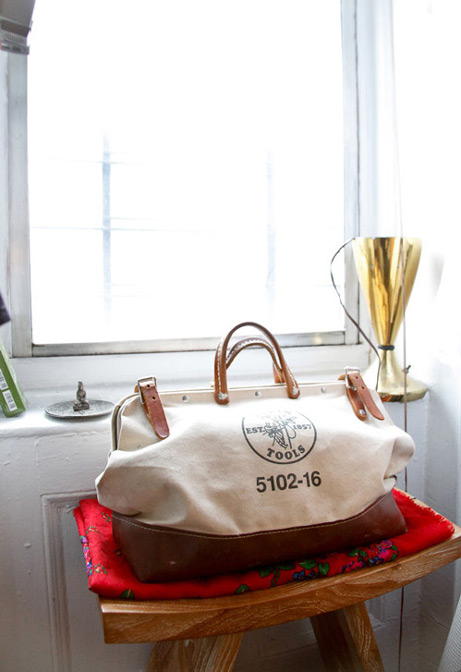
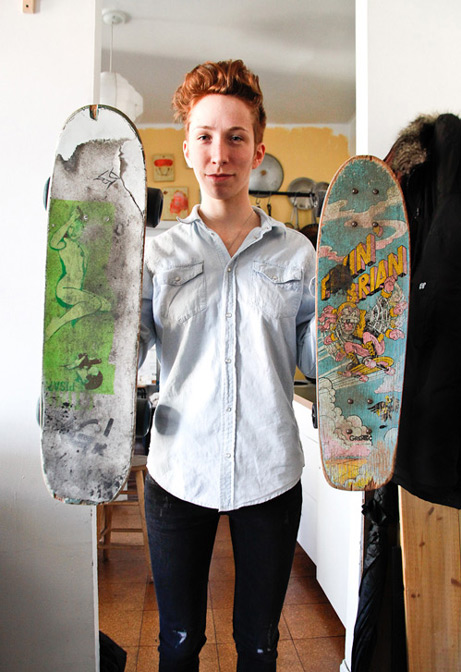
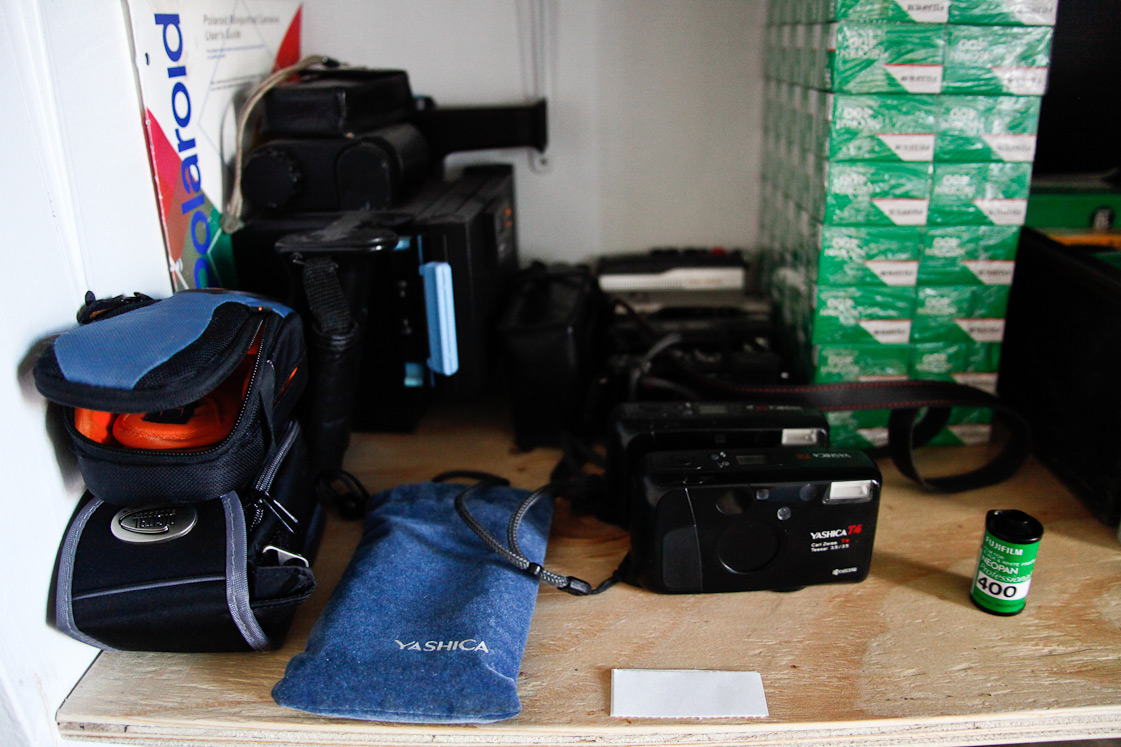
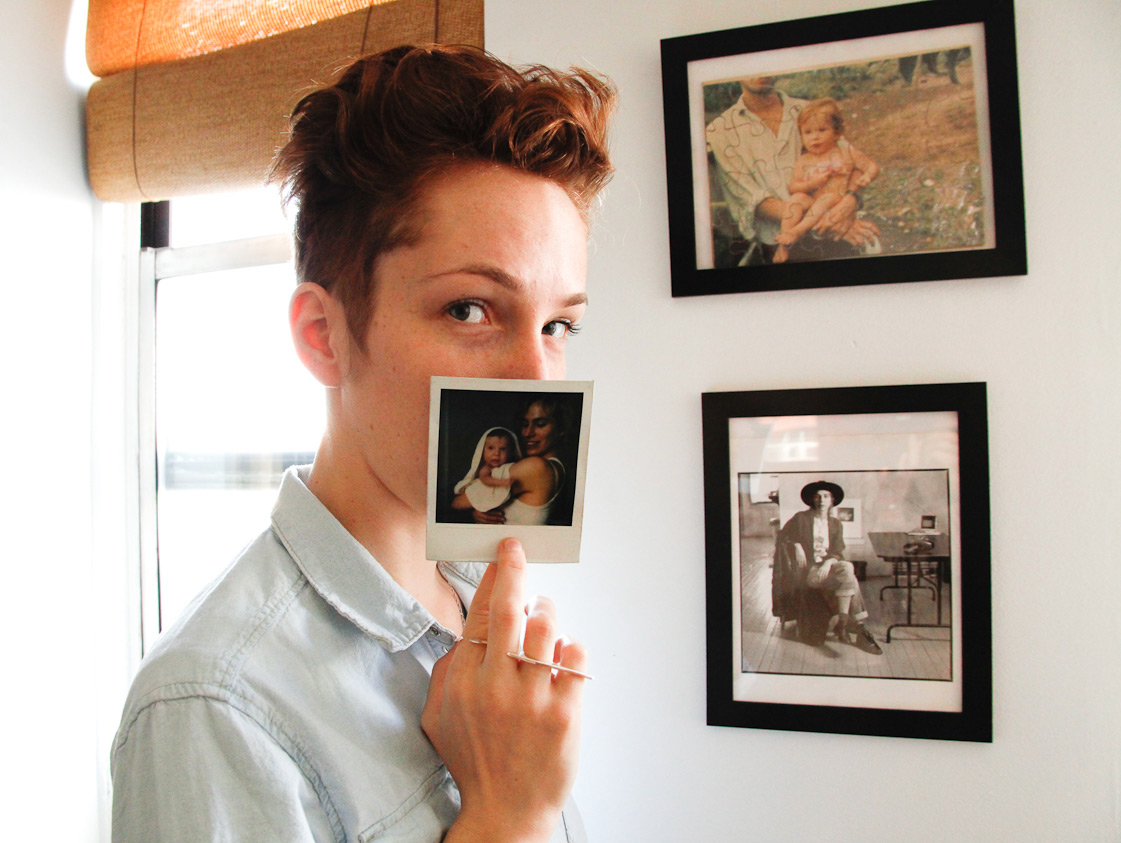
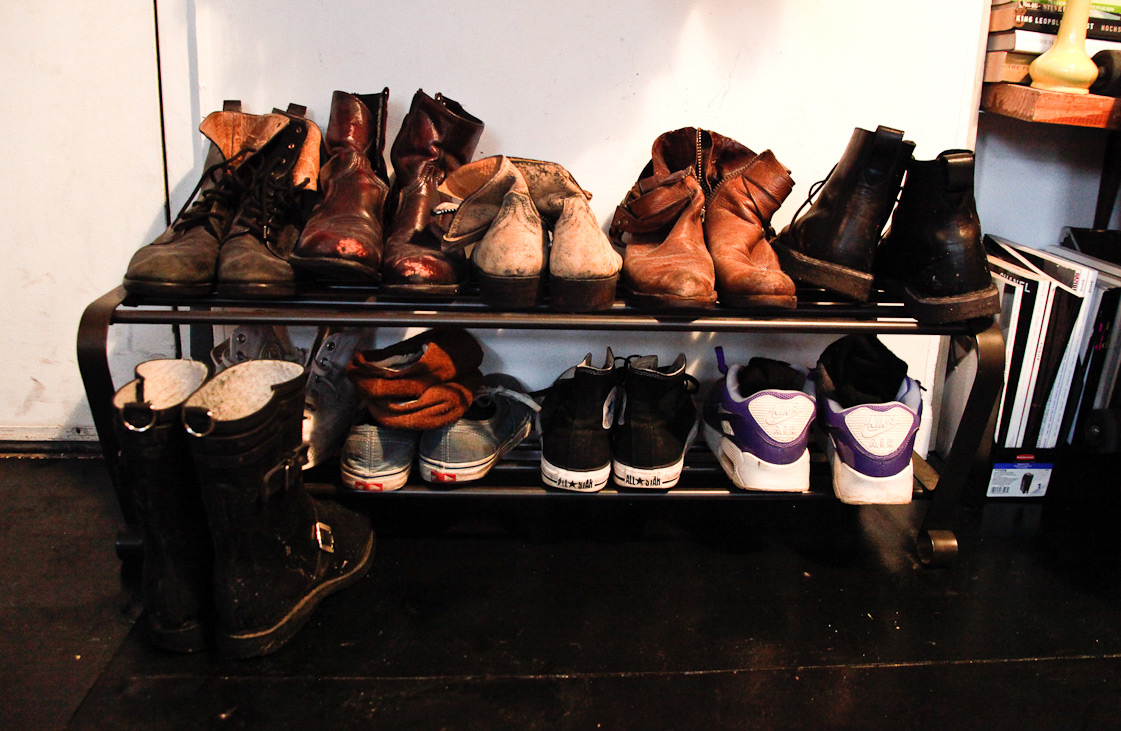
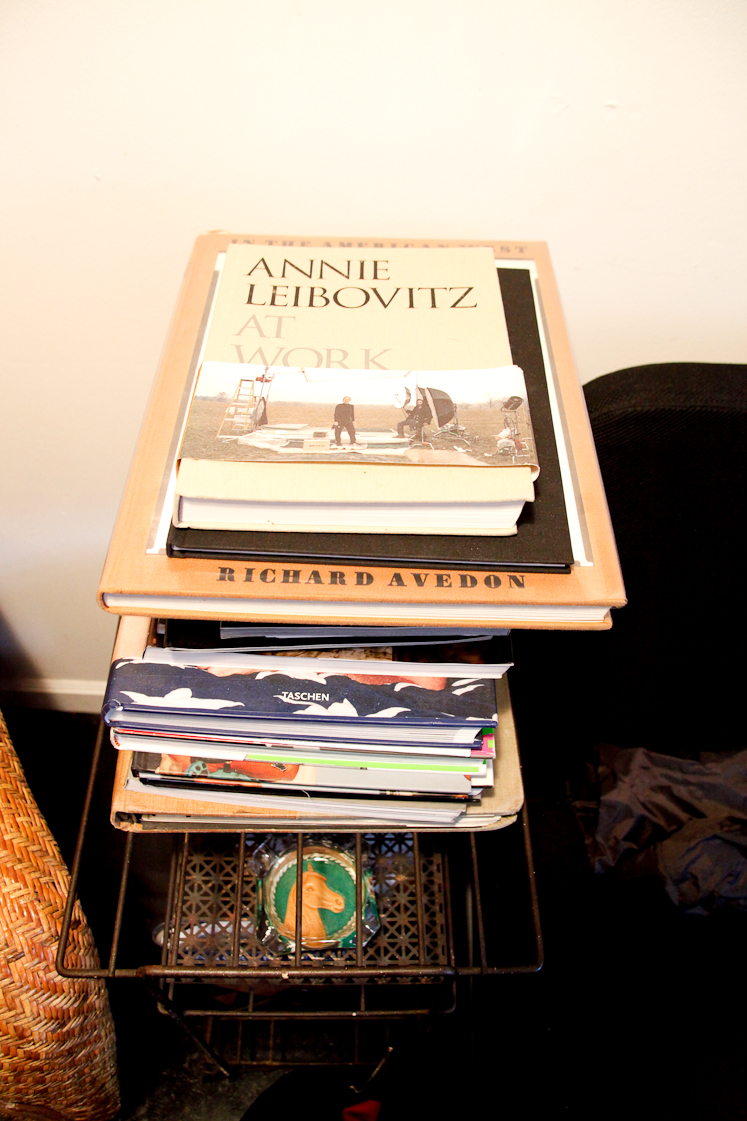
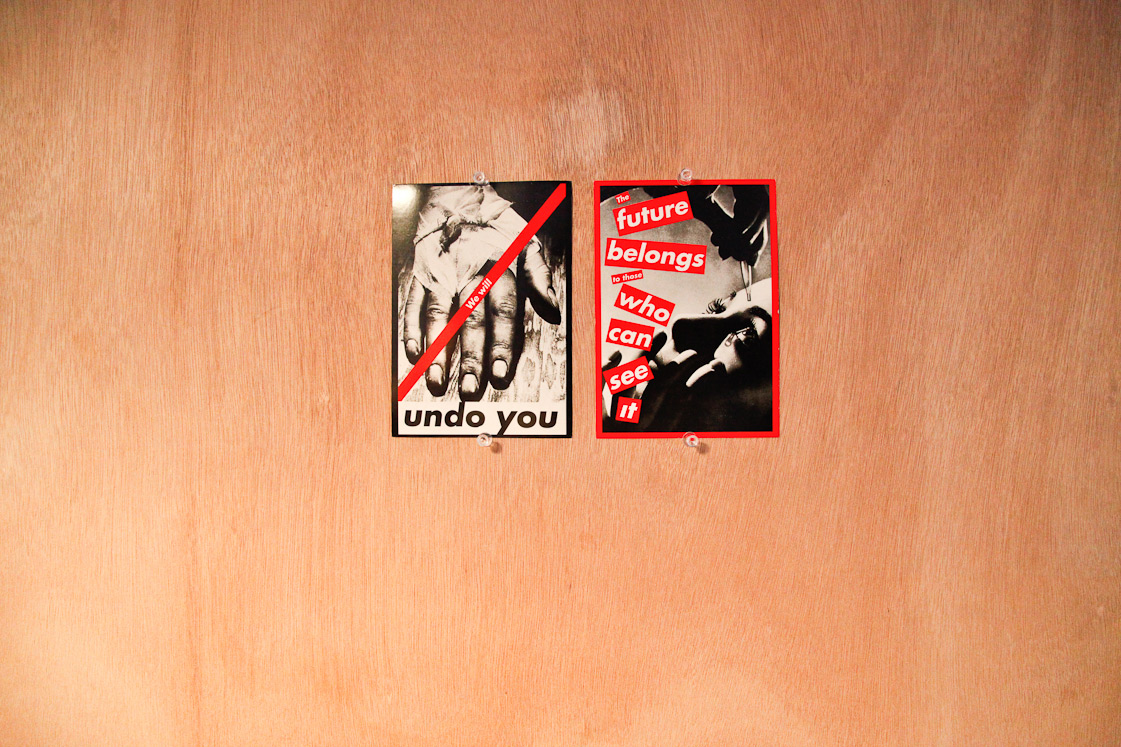
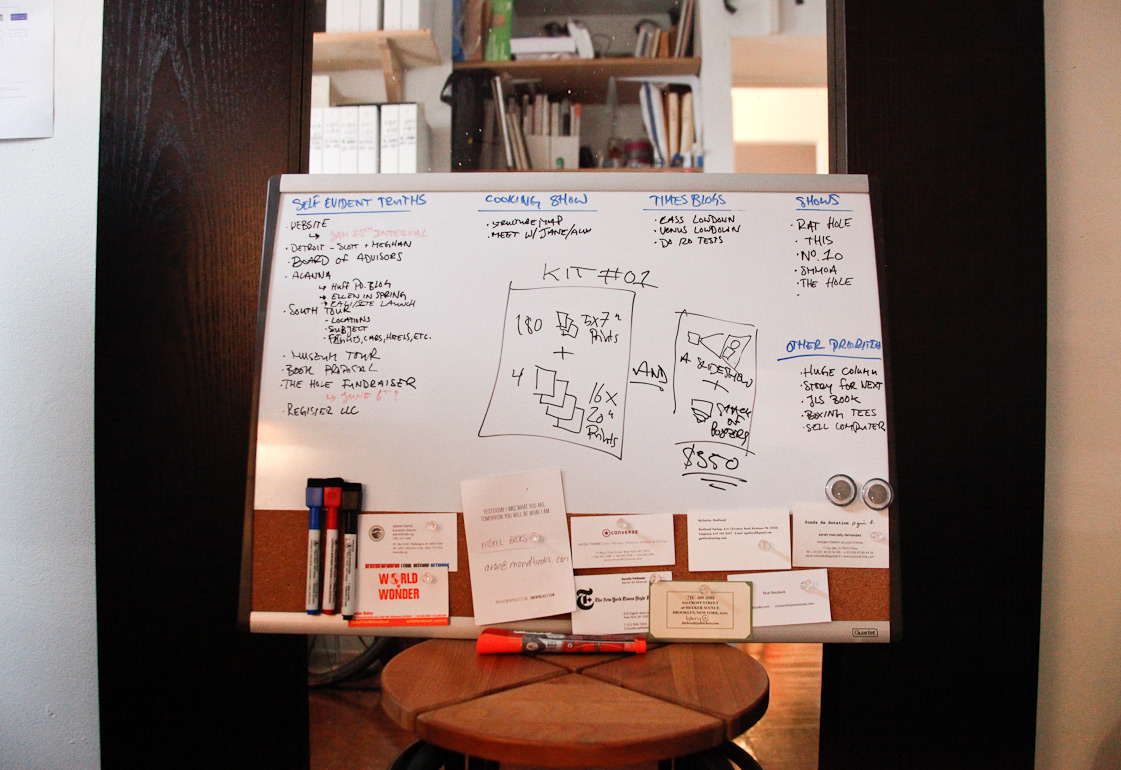
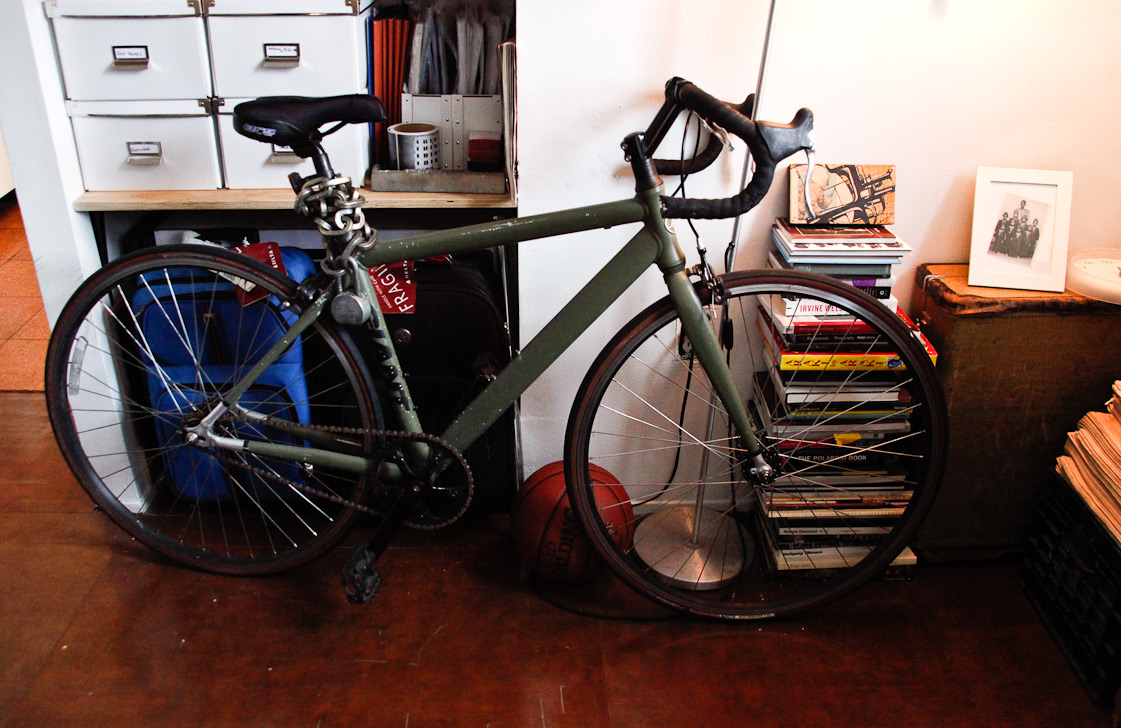
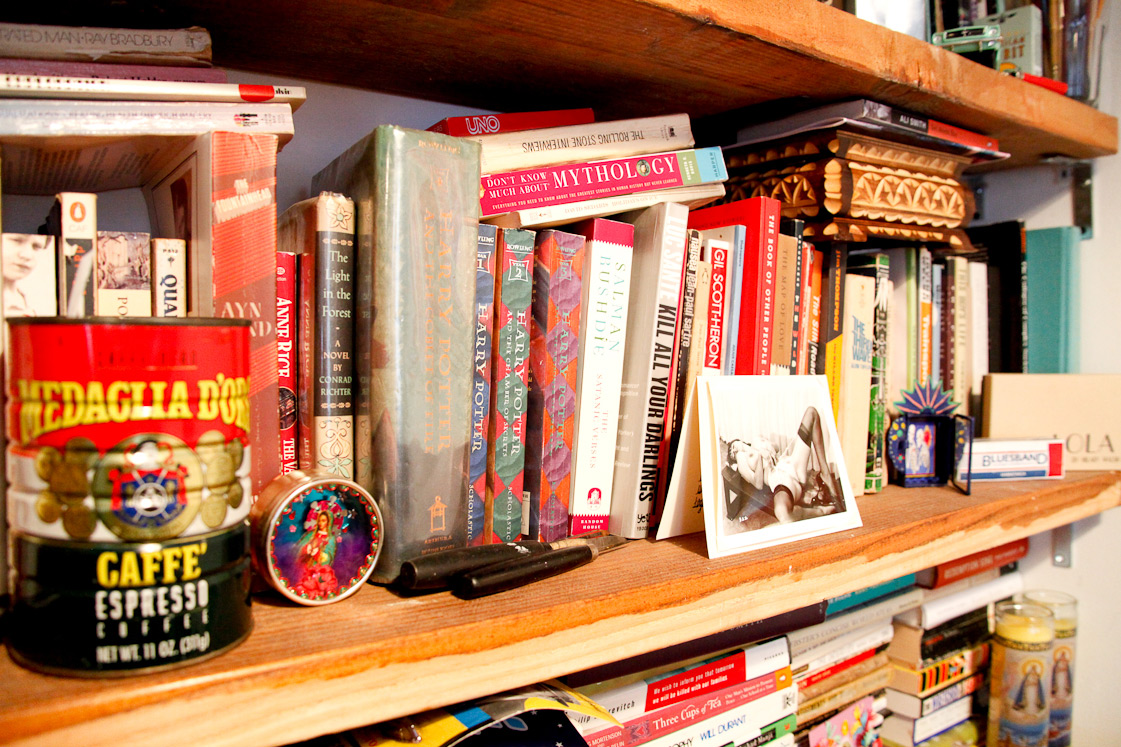
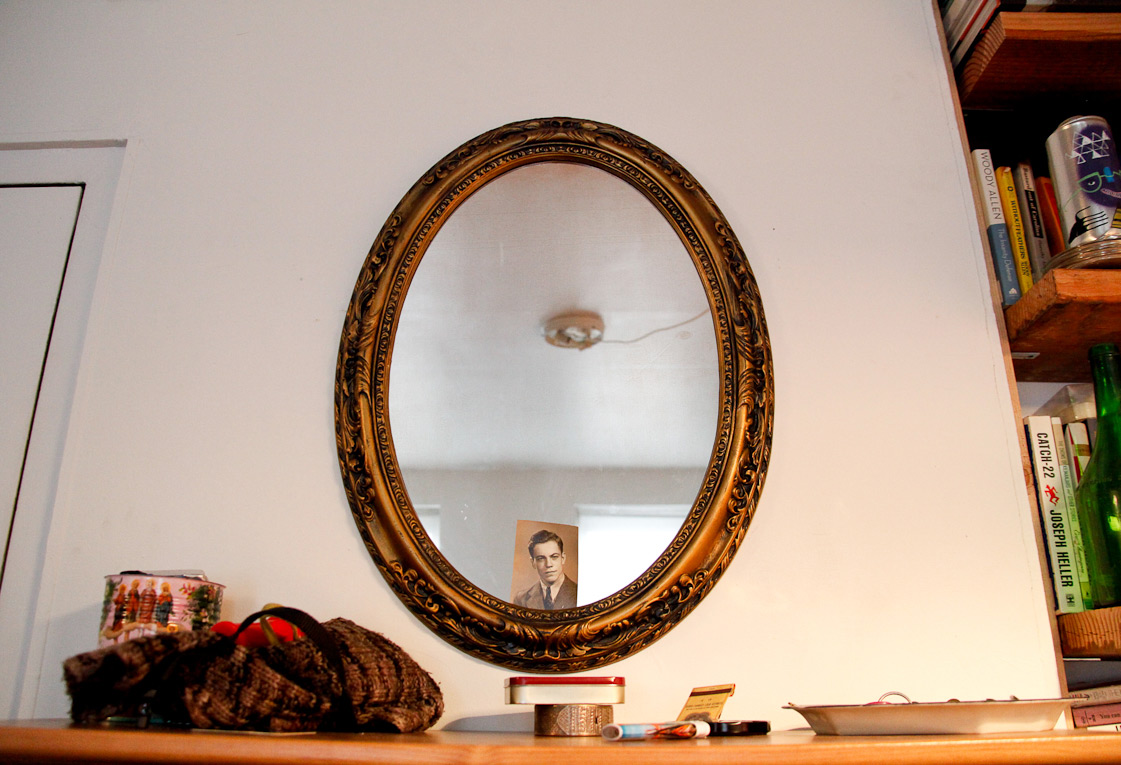
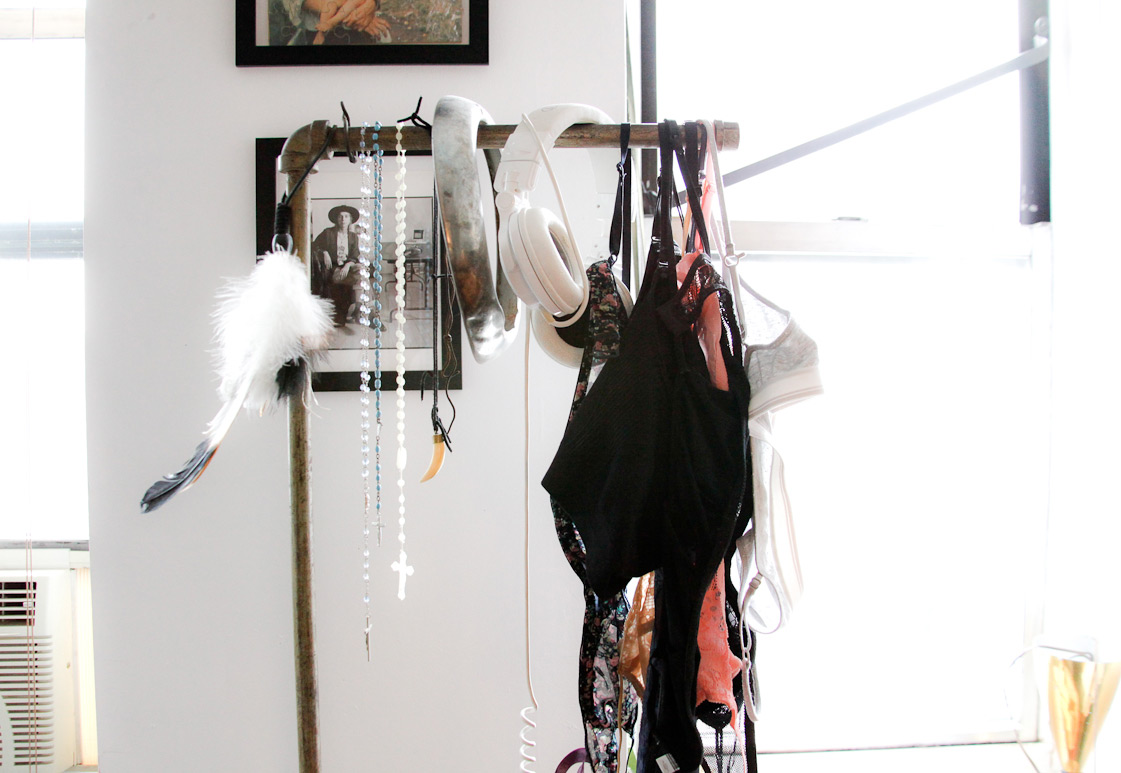
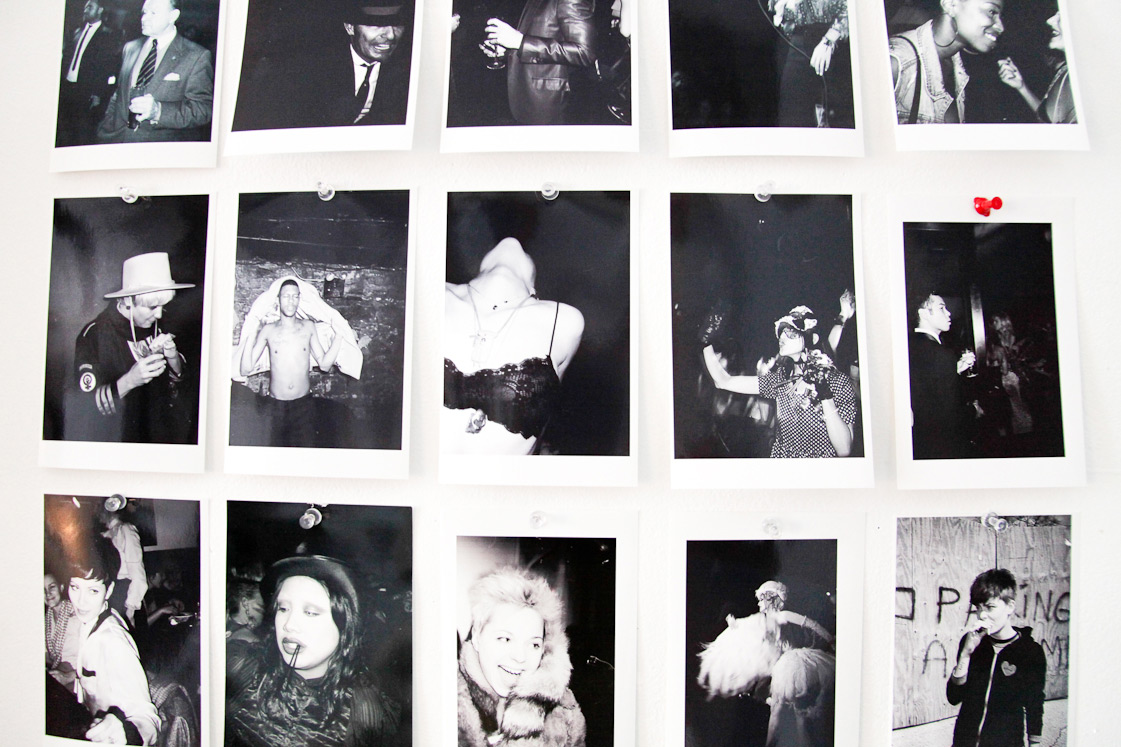
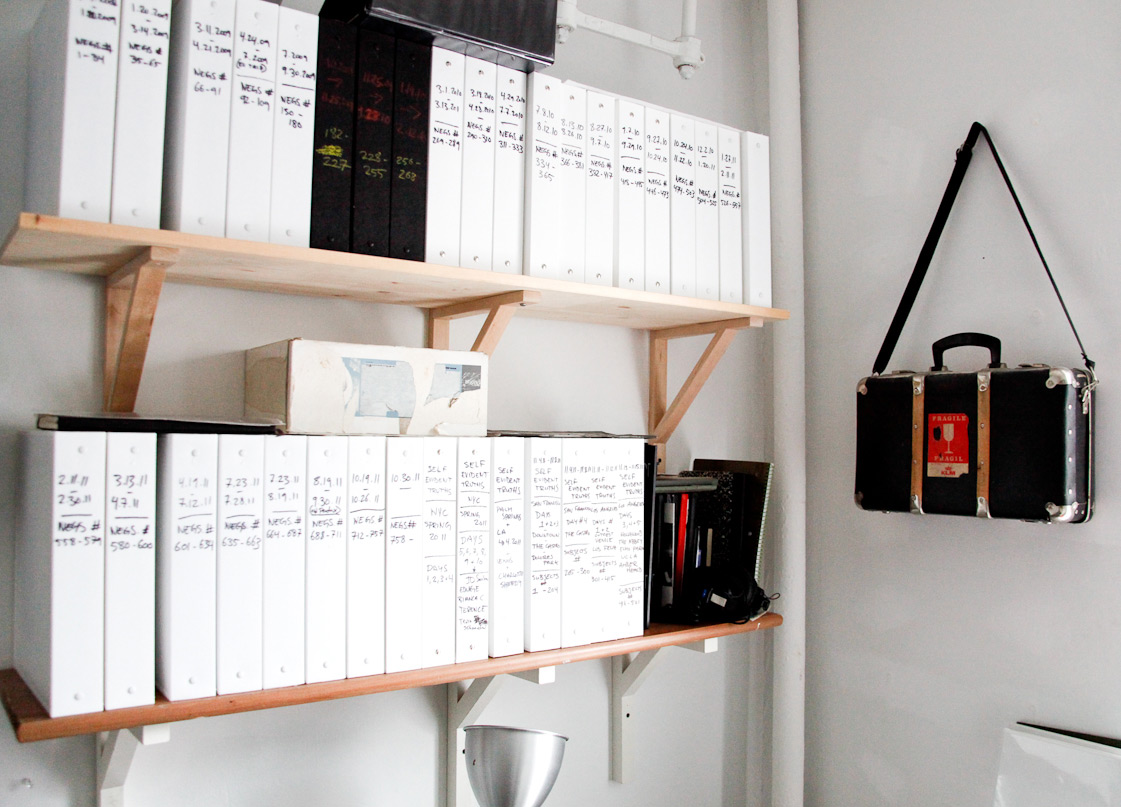
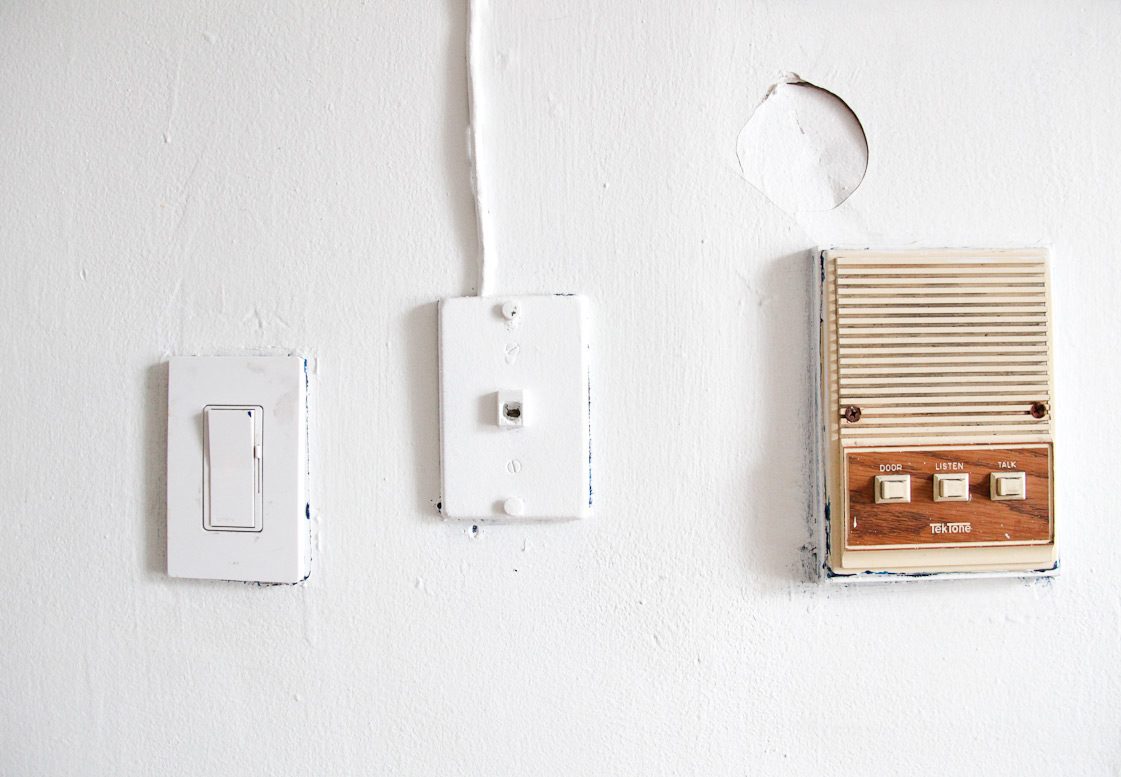
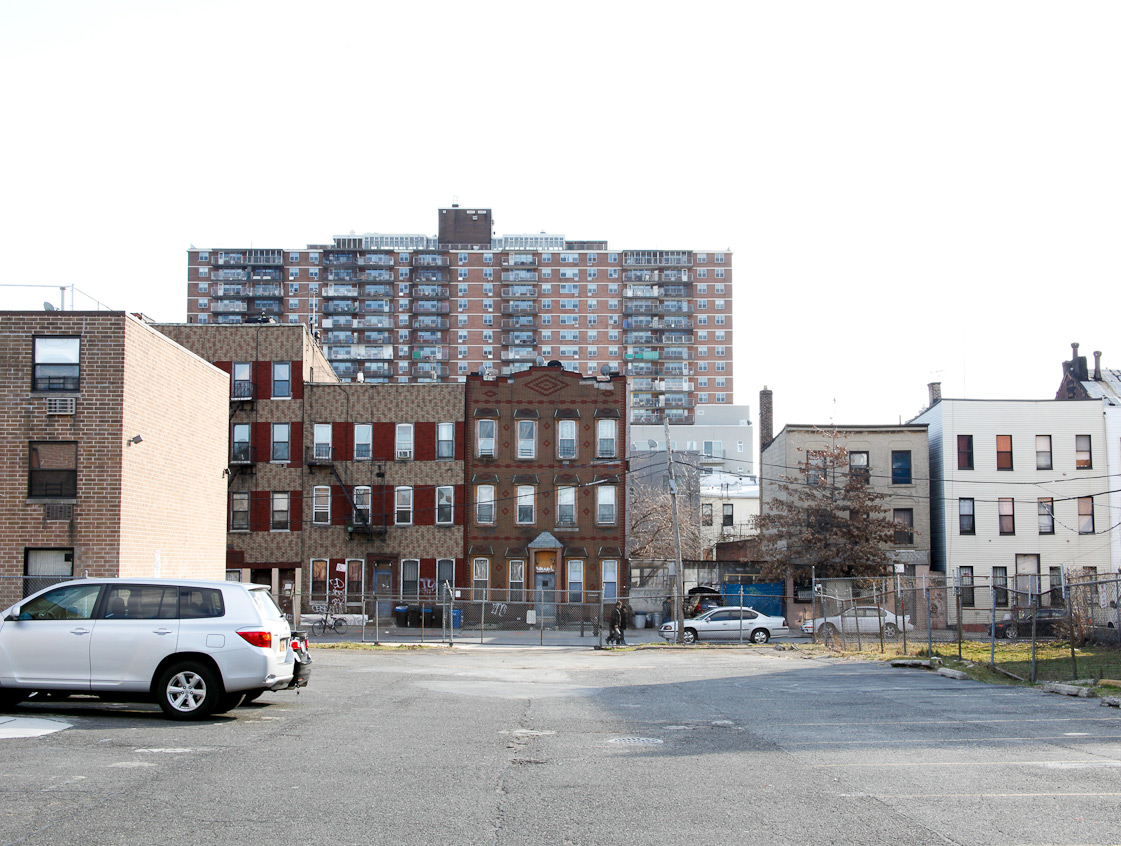
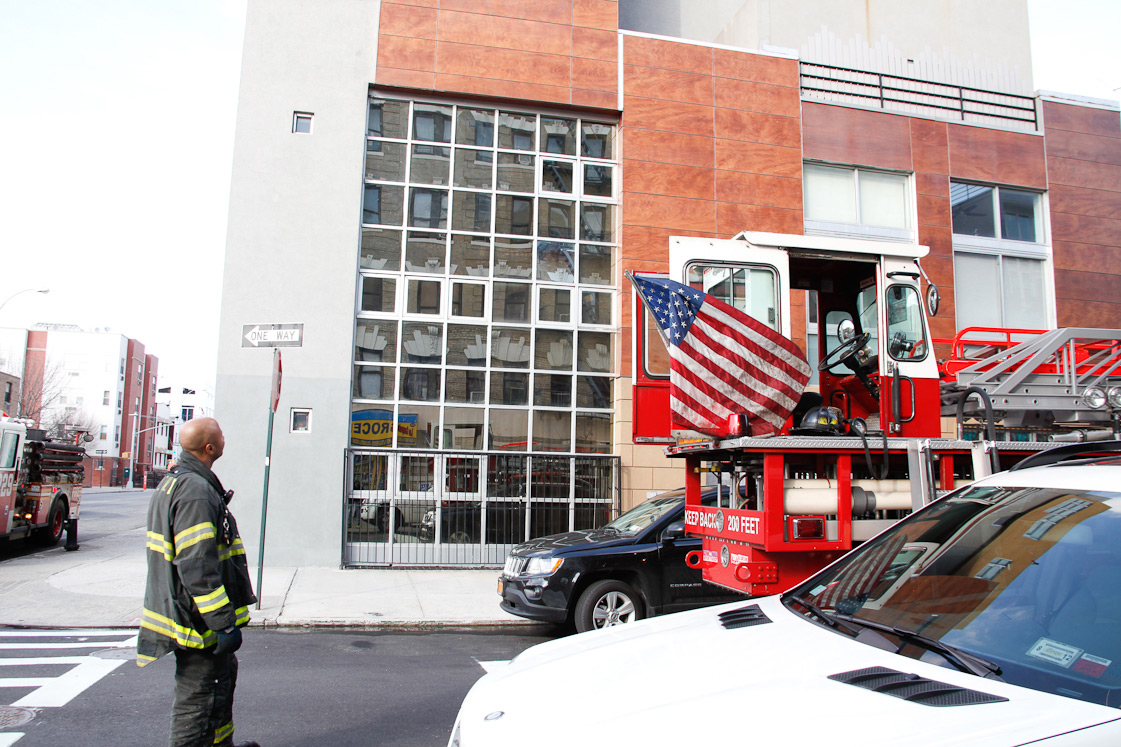
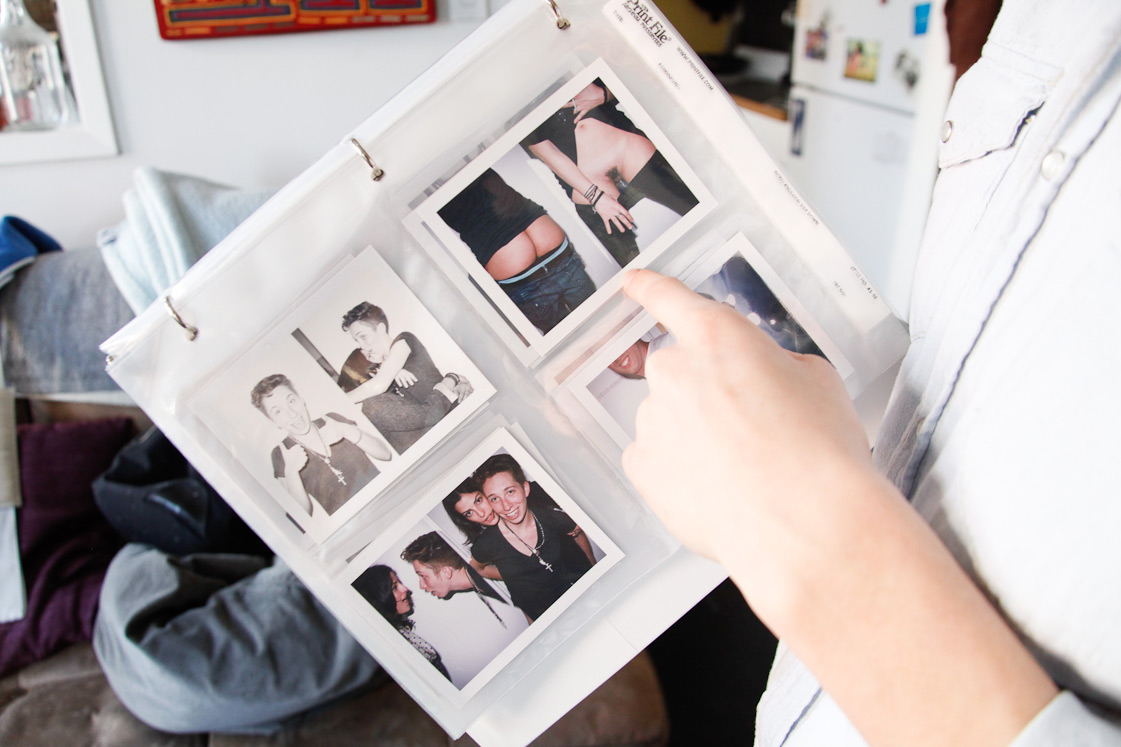
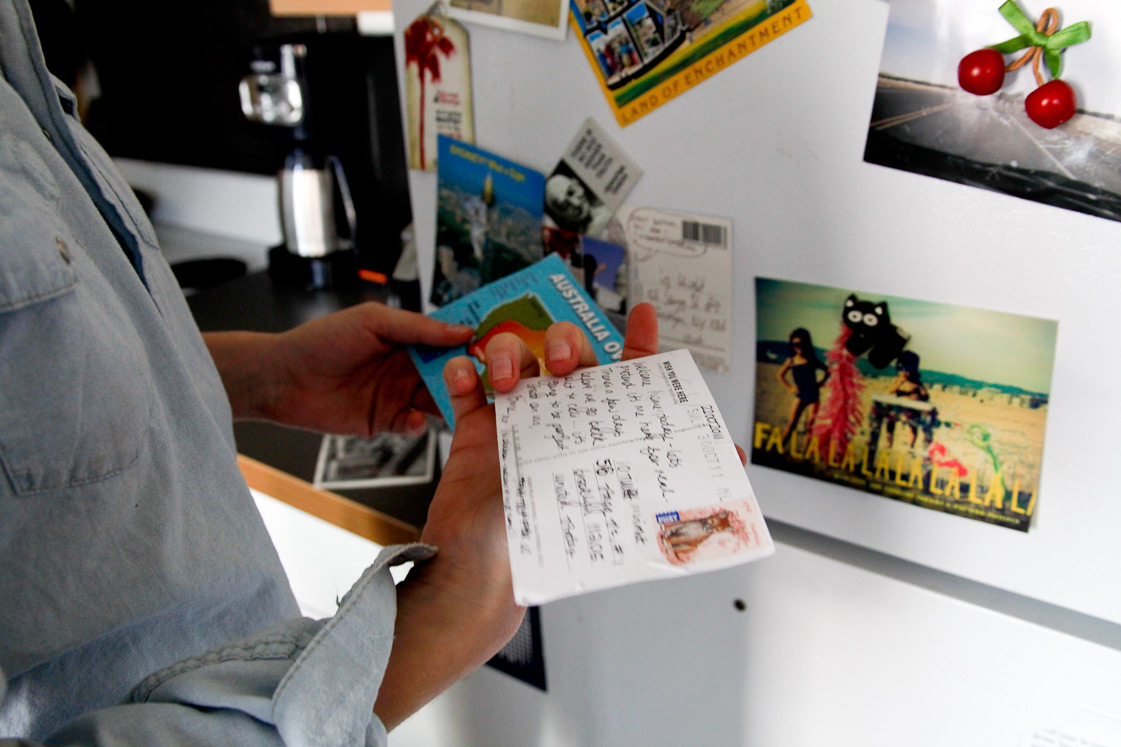
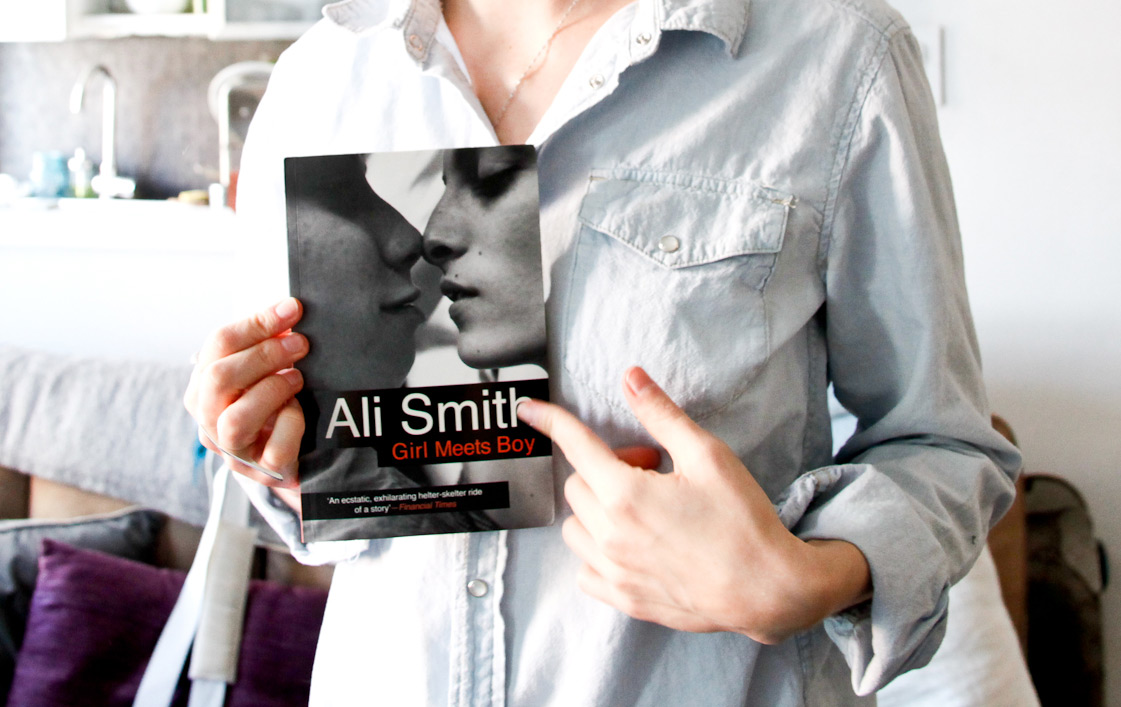
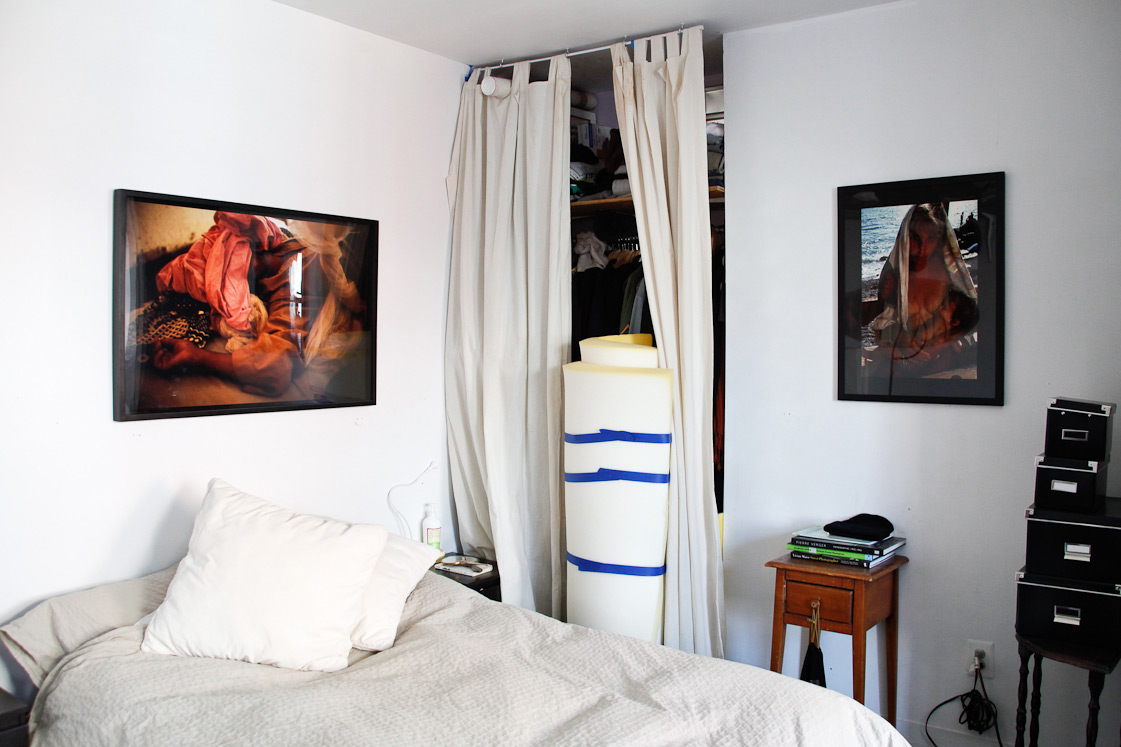
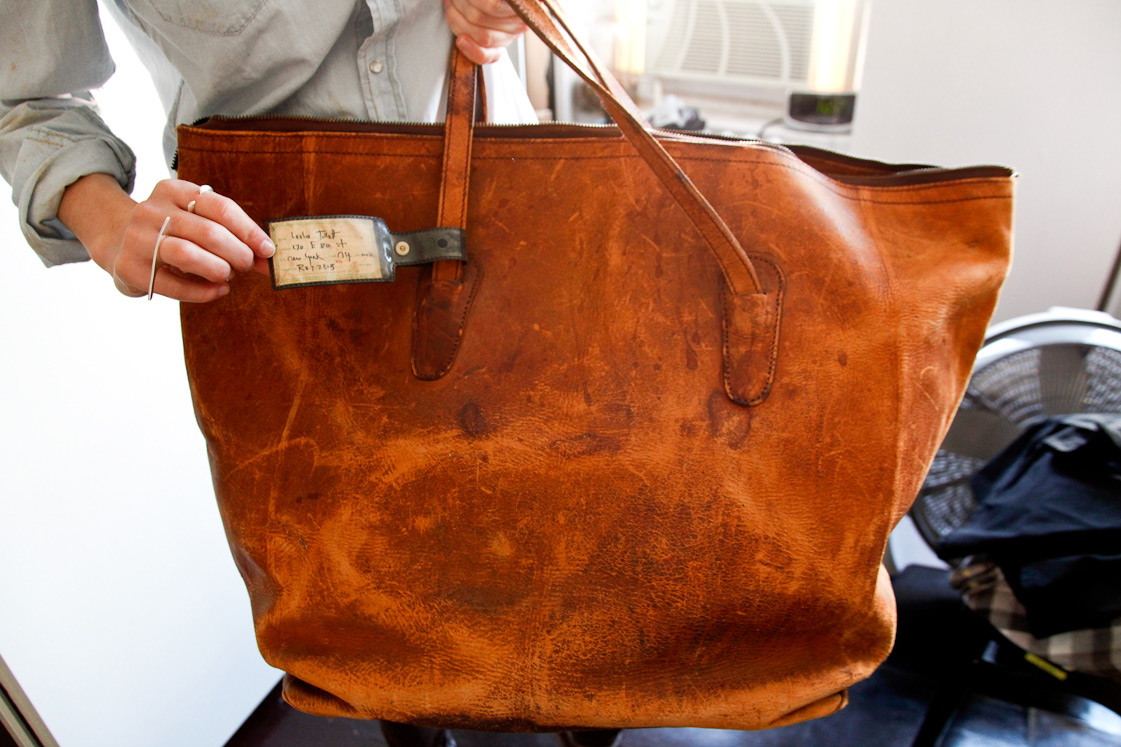
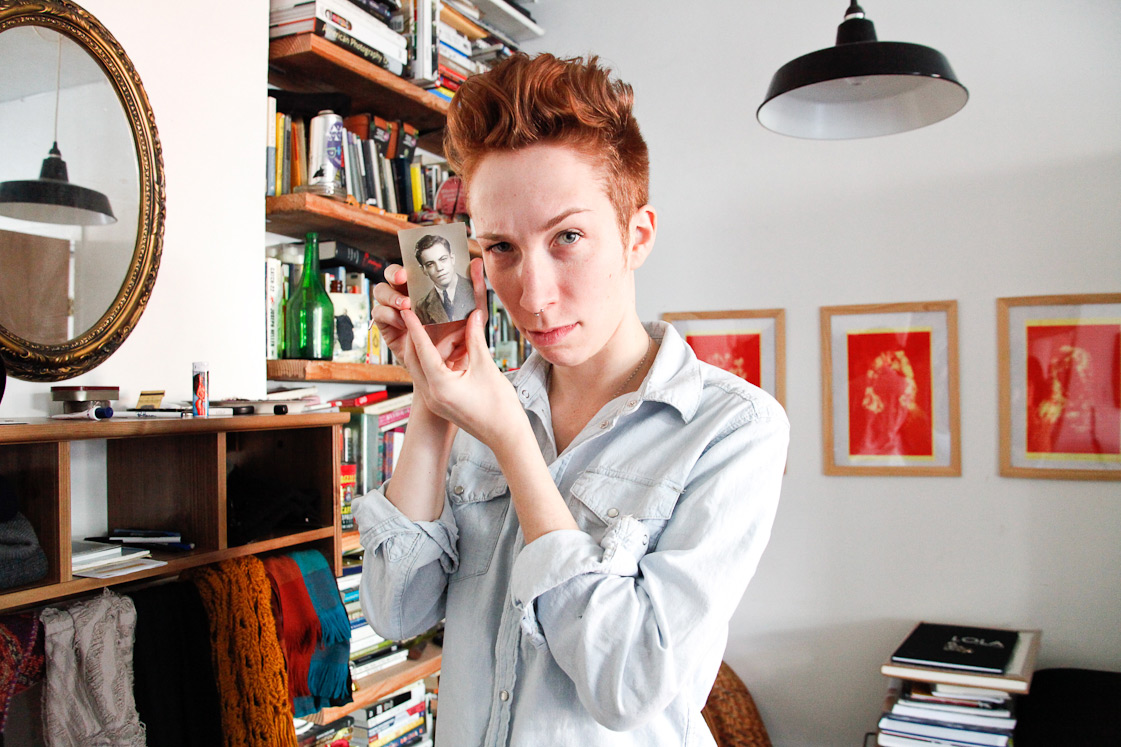
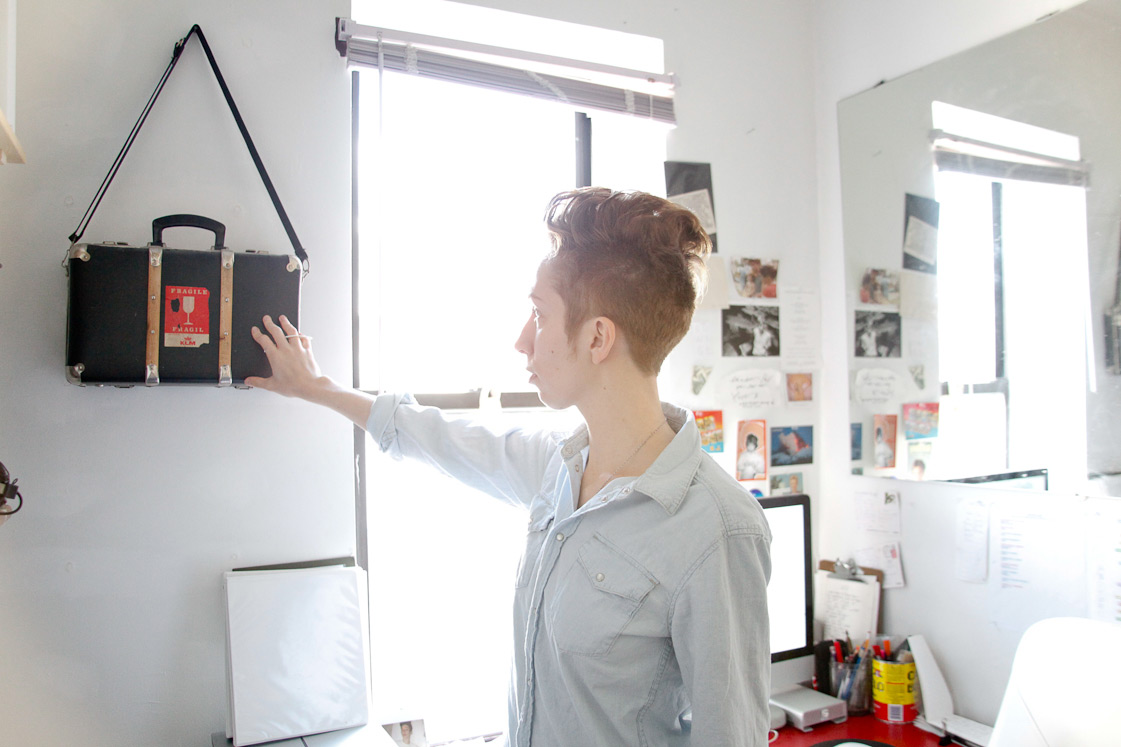
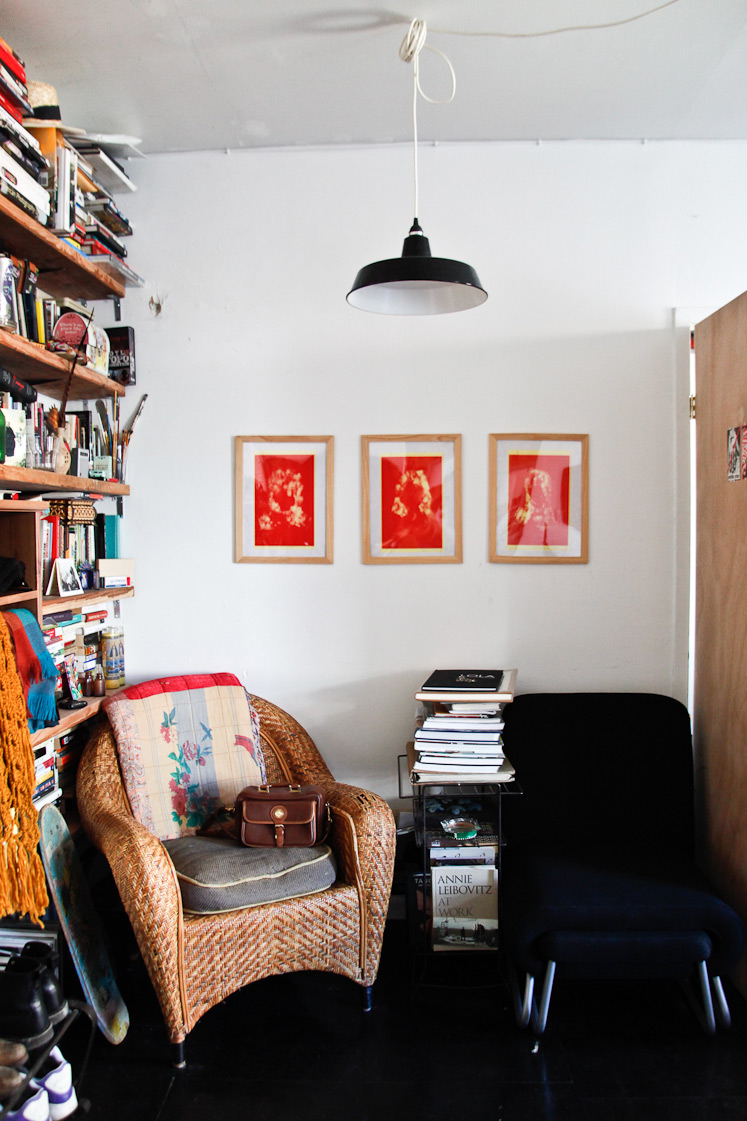
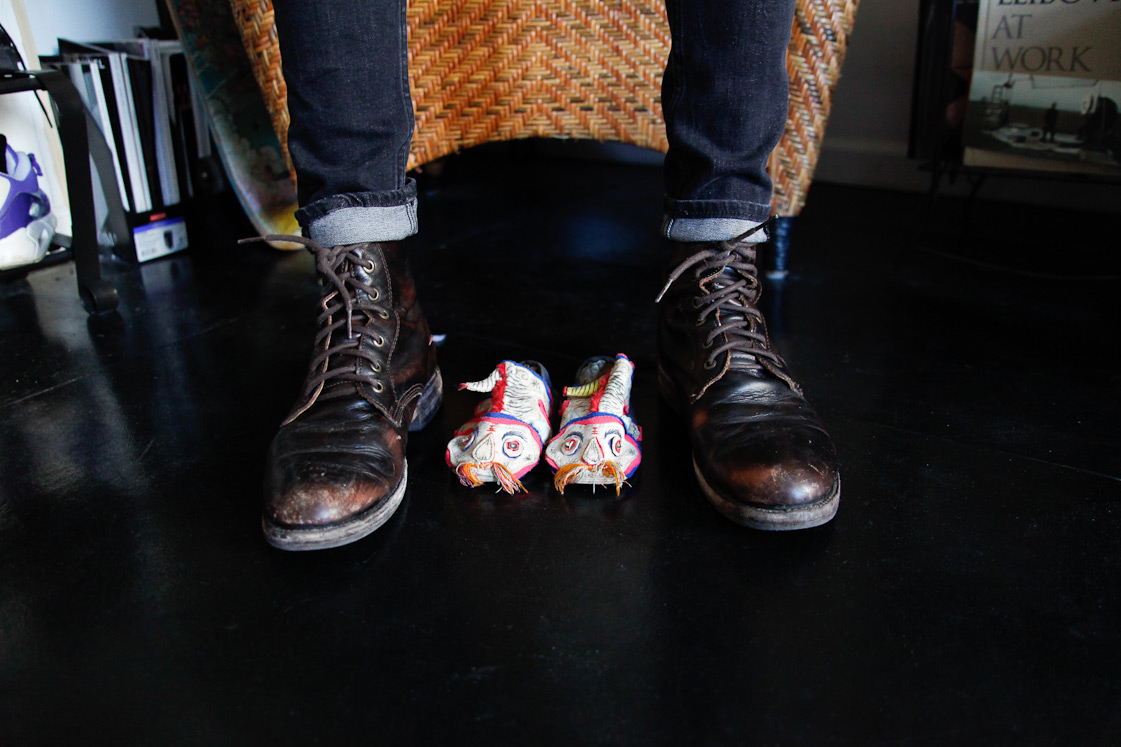
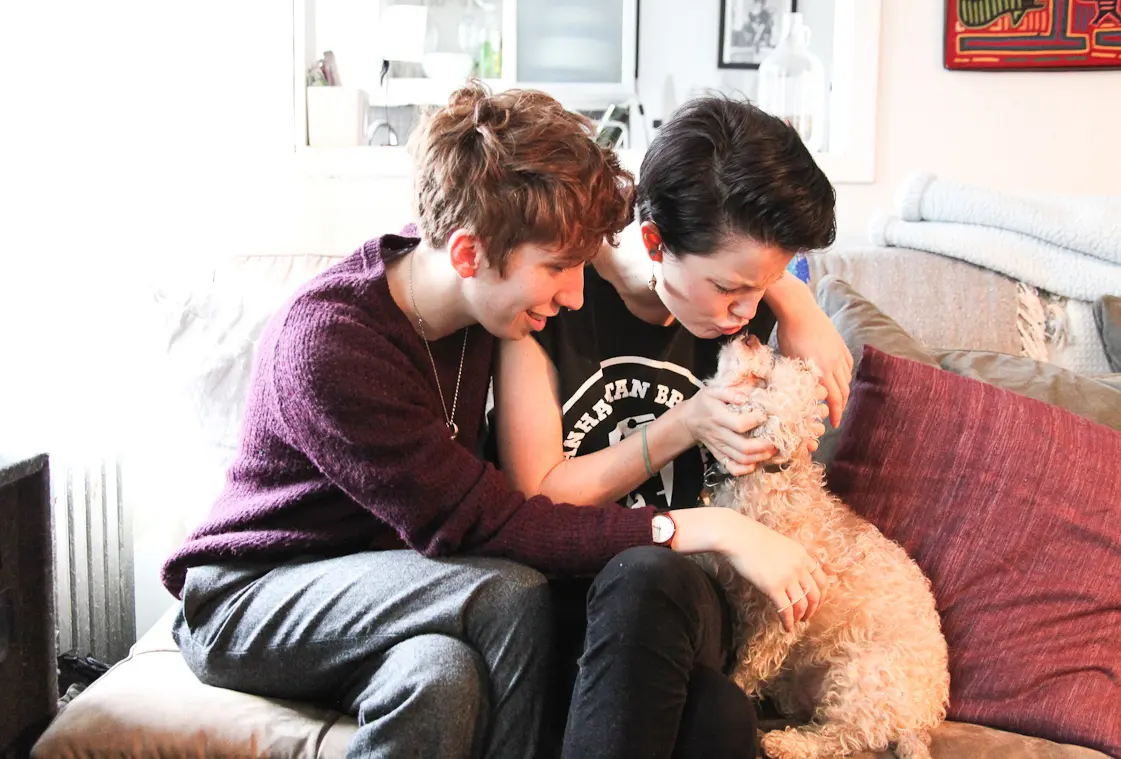
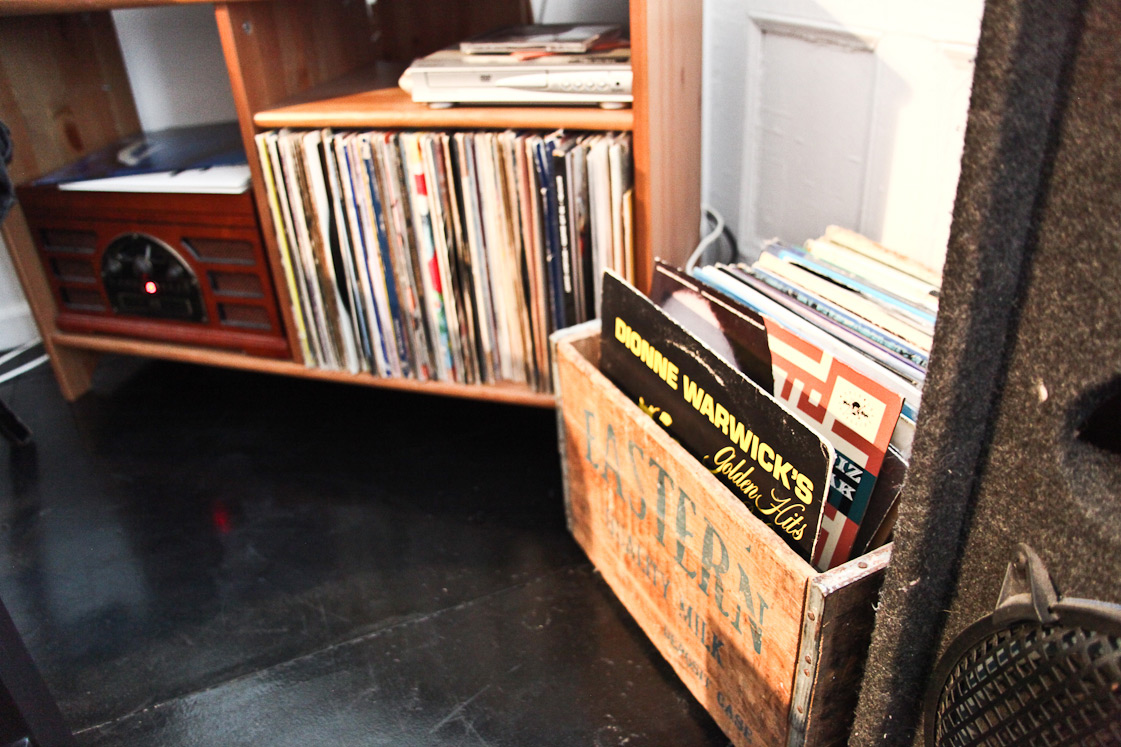
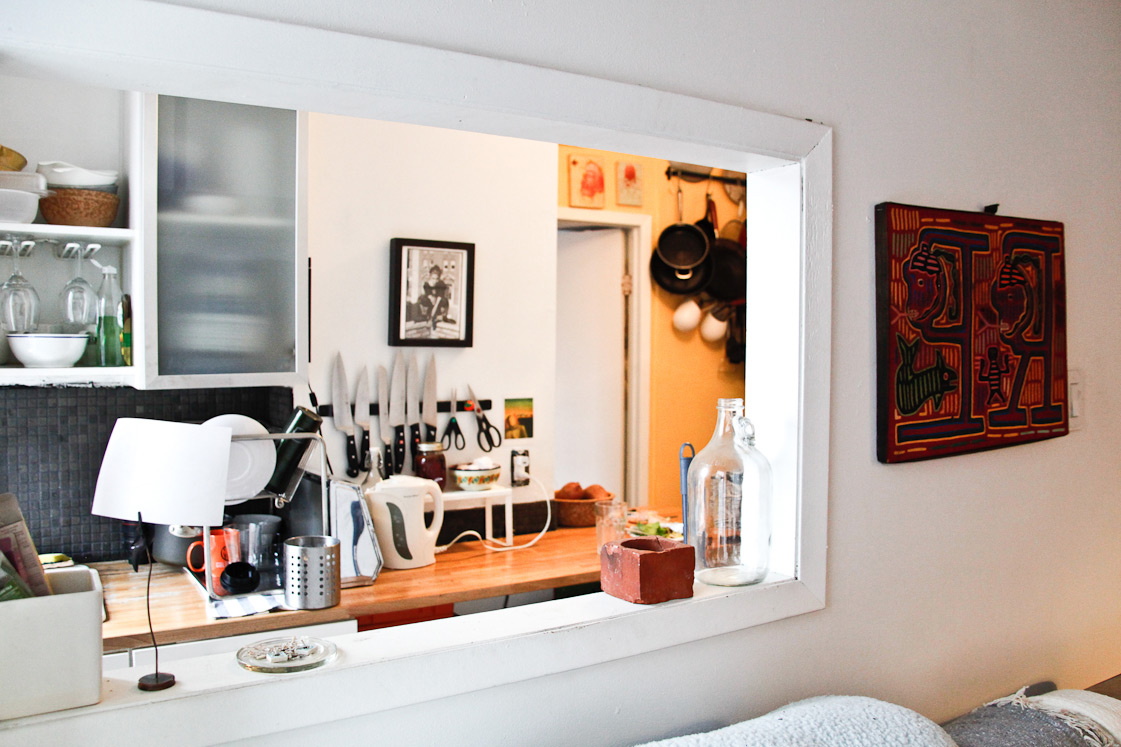
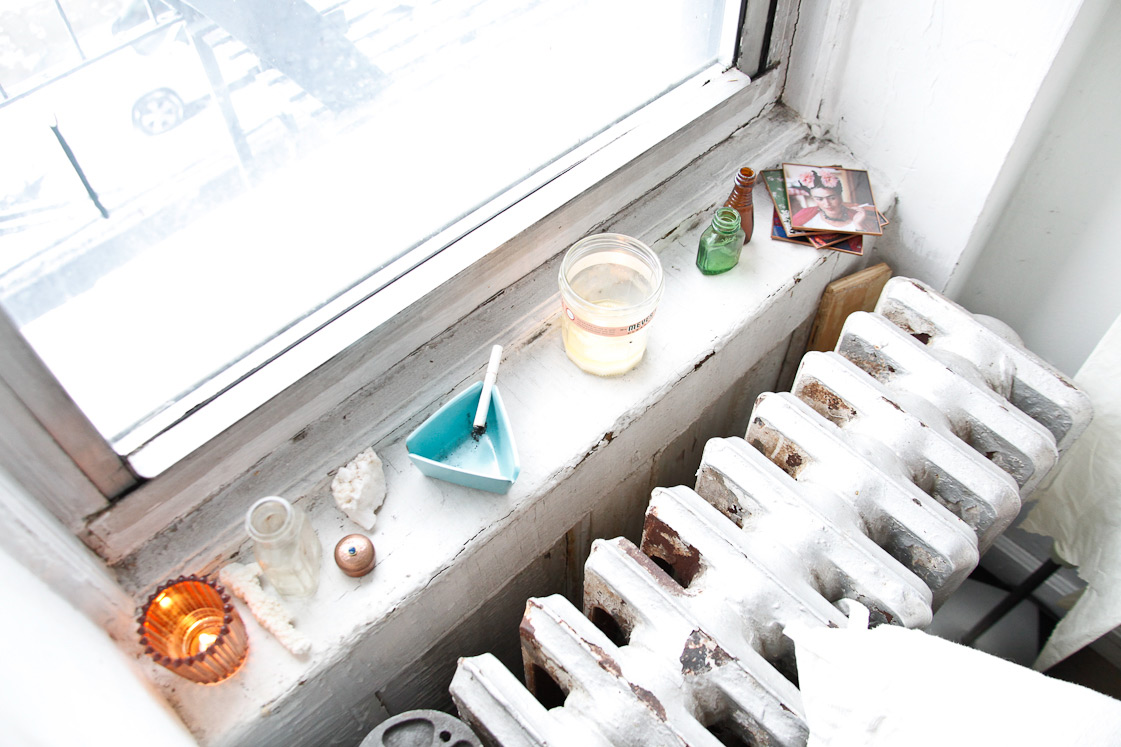
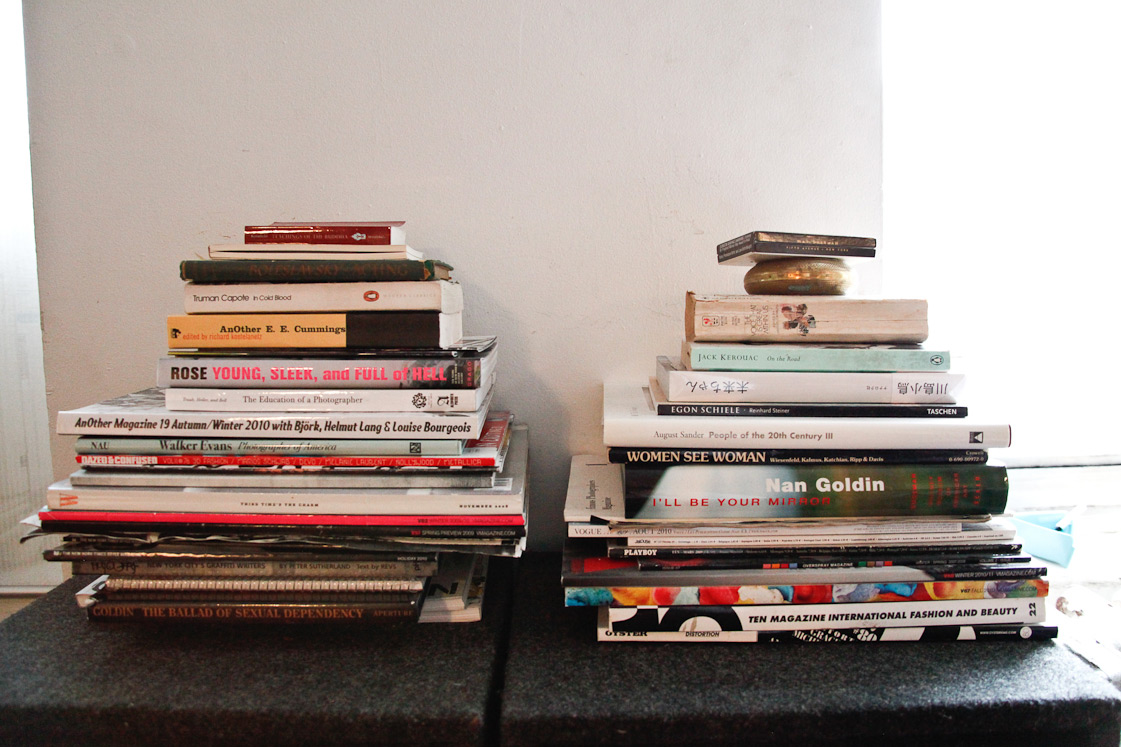
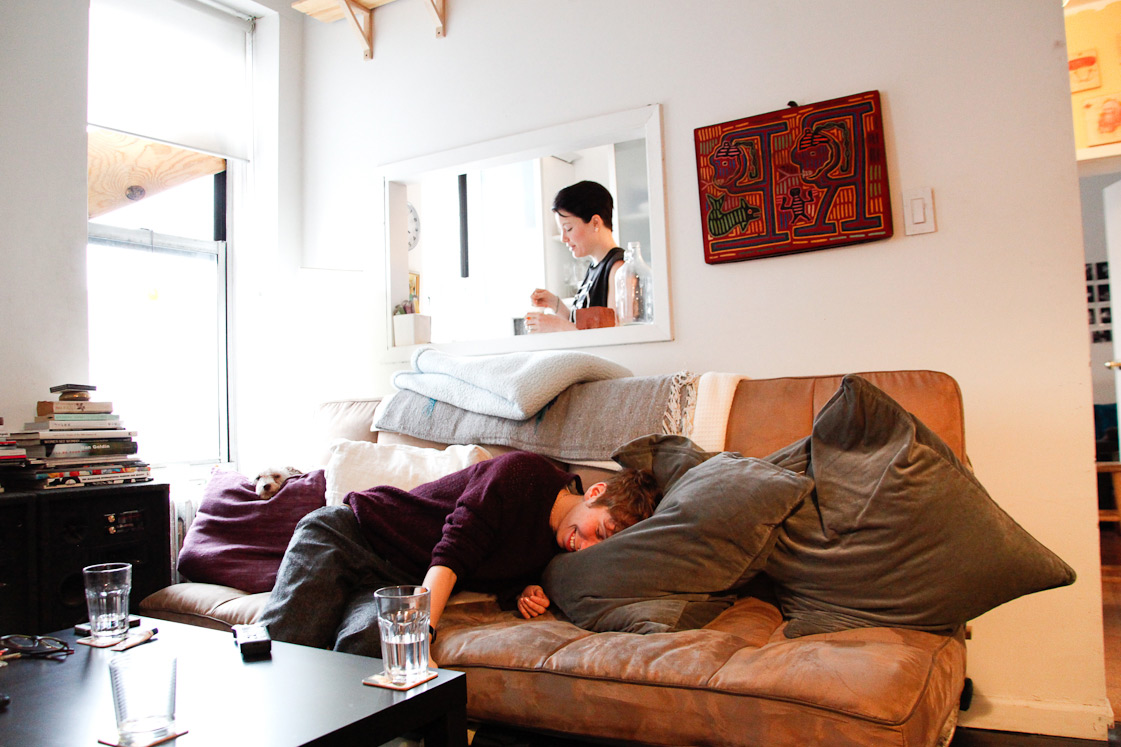
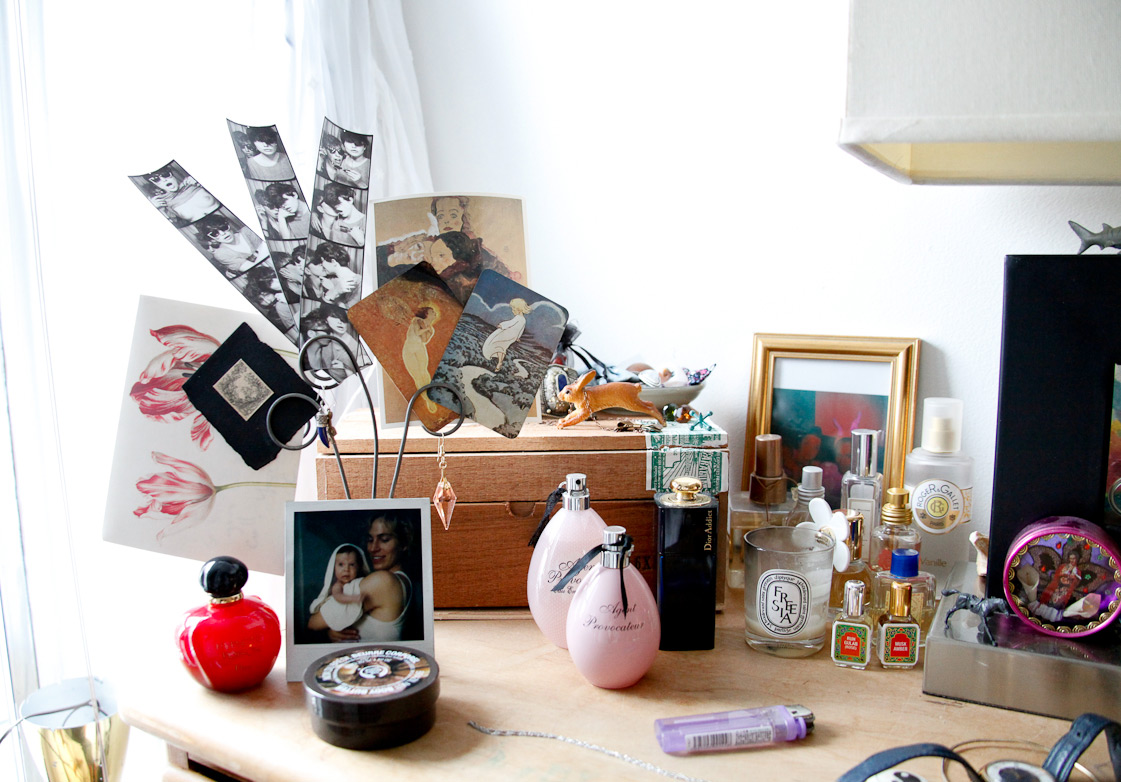
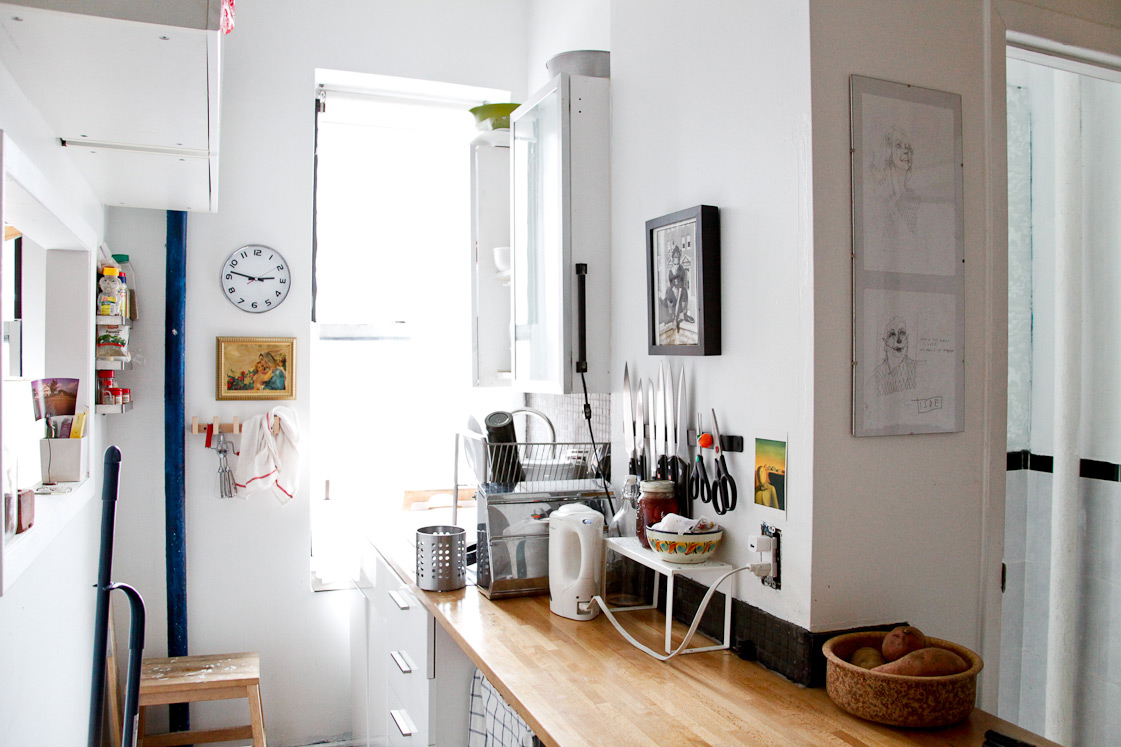
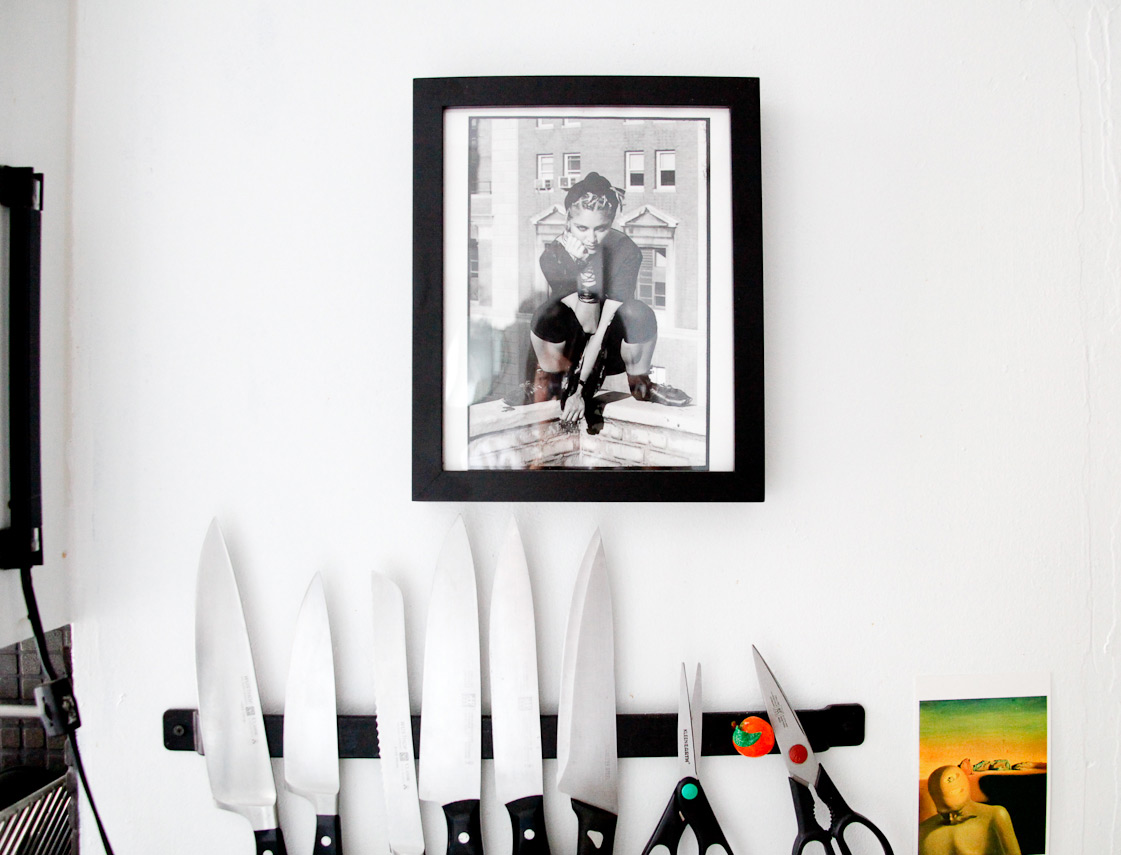
Where did you grow up?
I grew up in New York in the East Village in the 80’s.
What streets exactly?
3rd Street between 2nd and 3rd Ave., in the old New York, the wild New York.
What was it like going to school for you?
I walked to school everyday from the East Village to the West Village, which was like walking through Wigstock; basically it was like every fucking drag queen and every gay boy were letting out for the bars, so it was like real New York, Newyorkiness.
And can you still find that Newyorkiness?
Fuck no dude, no it was the era of all the freaks and all the junkies and all the Hells Angels and all of the artists who were too poor to live anywhere else. They all lived in one of the two villages in New York city, and that’s a lot of fucking people to fit in a tiny space.
Why did you live there?
My parents are artists. I felt like my mom never had any option of where she was going to end up in the world. She was like the other side of a piece of Velcro that got separated at birth and then her entire life she was trying to find her way back to her piece of Velcro. And so once she found it, she got stuck and hasn’t left. Literary, she has not left New York in, I don’t know, 10 years.
She is still there?
She is still there on 3rd Street, riding her bicycle. At least once a day somebody is like “Yeah I saw your mom riding by me on her bike, but she was going too fast so I couldn’t say hi.”
Did you live anywhere else growing up?
I lived in Germany for two years when I was 13 to 15. I went to live with my dad for two years, got kicked out of school, went to England for two years, got kicked out of school again, and then came back.
Did you end up going to art school when you got back?
Fuck no, I didn’t go to art school, who goes to art school, who does that?
You seem to have an opinion about that. What do you think about art school?
Sounds like a big fat waste of time to me. Everybody I know who ever went to art school is like “I didn’t learn anything practical there”. My personal experience of working in the arts is that the best and most interesting way of making art is something that you either do naturally or you don’t do. It’s not a skill that you go to school to learn or to get better at. Chances are at 18, you don’t know what you want to make better yet. So the idea of going to art school in lieu of college doesn’t really make any sense to me. Go out and work for somebody who is an artist doing something that you find interesting, chances are you are going to find it interesting. But you are not going to work in that field, you are going to go find somebody else, and they are going to teach you everything you ever need to know and you can make connections and then you get your job.
You did that?
Yeah.
How did you do that? Or whom did you work for?
I stumbled into it, because my first job ever was as a video editor when my friend handed his job off to me. He lied and told his manager that I was a whiz kid editor and then the manager believed me and hired me. I didn’t even know how to work final cut! While I was there, one of the guys who owned that company was married to Cheryl Dunn. I was 19 and, and she needed an assistant, so went to work for Cheryl like filing her negatives, edit her movies, and assist her on shoots. I worked for her for three years. I loved Cheryl.
So fast forward five or six years and you have a few blogs for The New York Times. Tell me about them.
So I have two blogs in the New York Times now, soon to be three or four. “Notes From the Underground” is my blog about underground performance. I cover freaks and trainees and weirdos and all those people that New York Times has never really covered regularly before. Basically I walked into the New York Times and I said I wanted to shoot performance in my way, on film, not paparazzi style (meaning I usually take like three or four frames of the show). The “Lowdown” is a blog that consists of portraits and brief interviews with people that I think do something interesting in creative fields. I am going to do another blog about models and how modeling affected their lives positively or negative. Everybody thinks modeling is so glamorous and so many kids want to model, but they don’t realize that there is this negative side to it. And then the last blog, the big kahuna, is the one I pitched to the Times for a cooking show. Originally the concept was to have the best chefs in the world coming in and teach me how to make a gourmet meal for two for under $27 because I can’t really cook. And then it escalated and grew and now has become the world’s first interactive cooking show.
What else are you working on right now?
I am taking “Self Evident Truth” to the South in the end of February. And that is going to be two and a half weeks of photographing gay people in the Bible belt, so that’s going to be really intense.
Tell me a little bit more about ”Self Evident Truth”.
”Self Evident Truth” is a project I started where I am photographing everyone in the United States who is or ever has been at any point in time anything other than a 100% straight. So if at any moment you have kissed or felt anything for someone of the same gender, I want to take your picture. There is so much discrimination against LGBT people in this country and my theory is that people just think that they don’t know us, they think they were just like the “mystery other.” I want to humanize us by showing our faces, because I think it will be much harder for people to discriminate against us if they can see us. At this point I have photographed 850 people in three different cities. We are doing eleven cities in the south over two and half weeks this spring.
Are you afraid of going to the south as a big gay caravan?
Well the caravan is actually not as gay as it could be on biggest red flag. Kashi my producer looks like a total girl, like long hair pretty face and the two guys were coming with us are straight dudes. So I am the one that everyone is going to have to worry about, as fucking usual. I’m the “boys don’t cry” in the caravan, but I mean like, yeah I am scared on the one hand because it’s just uncomfortable for me to go into situations like that and it gives me so much anxiety, but on the other hand at least I am going with this crew of people and this intention, and that if I am going to get into a fight with someone at least it’s in a situation where there is a camera there and we could have a discussion that will matter. It’s different than just randomly getting gay-bashed in like Idaho or something.
Do you feel like you ever had to deal with something like this growing up in the Lower East Side?
No, I have never experienced any kind of discrimination or adversity or anything based on my sexuality ever while living there.
How would you describe your sexuality now?
Well I ask everybody who gets photographed for the project the same question of “what their percentage is”.
What do you mean by percentage?
My theory is that I would go so far as to say no one is 100% anything. A 100% is so black and white and I don’t think that that is how human nature works. I don’t think human beings are capable of being 100% something for the rest of their lives. So I don’t think anyone is 100% straight or 100% gay, you know what I mean? Because of that, “Self Evident Truths” has basically become a campaign to show that we have all some shade of grey not black or white. And that applies to everything. That applies to race, to income, to education, to sexuality, to everything. You can’t just separate people into boxes and have them stay there.
What music are you into right now?
Lots of psychedelic garage shit from the 60’s, lots of Brazilian music. My lovely girlfriend over here has got me into dramatic movie soundtracks which is really fucked up because you are sitting there and suddenly you are like “why am I so excited right now” or “why am I so distraught?” And it is the Requiem for Dream soundtrack or Danny Elfman, which is the Men in Black soundtrack – you are like flying through space with these kind of music. And Aziz Al-Mubarak it’s this Egyptian pop singer.
Thank you for the interview iO!
Check out iO’s homepage and get a sense of his versatile work.
Interview: Fabiana Faria
Photography: Grace Villamil
